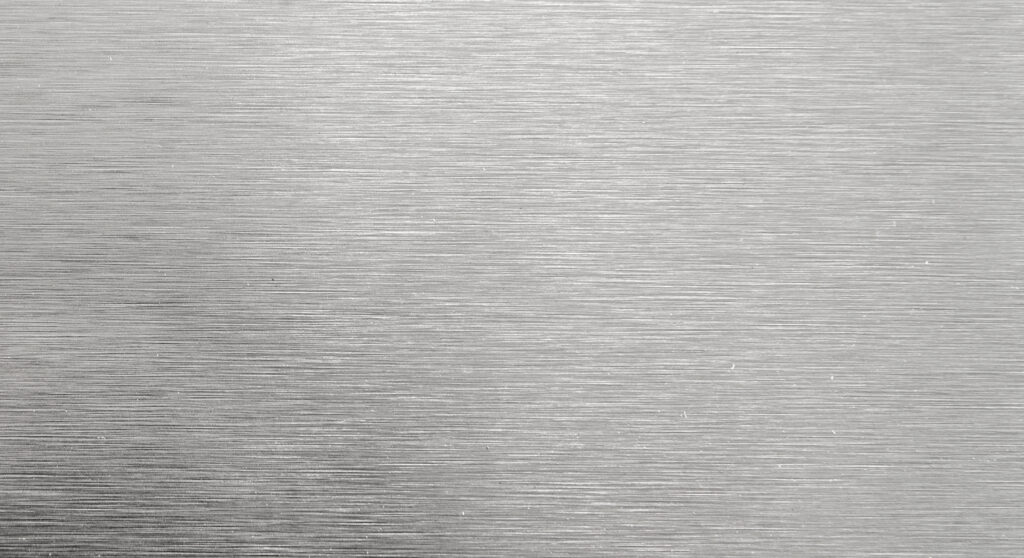Here are the Factors to Consider for Automated Graining on Stainless Steel Parts
In today’s manufacturing landscape, the transition to automation represents not just an evolution but a necessity for enhancing productivity, safety, and product quality. For companies considering such a transition, starting with even one automated process can set the stage for a more streamlined and efficient production line. In this article, we explore how automating abrasive processes, specifically grinding and graining applications, can be a game-changer for manufacturers, taking a closer look at a recent project involving stainless steel frames for sliding doors.
The Importance of Graining in Metal Manufacturing
Graining, or the application of a linear grain pattern to metal surfaces, is a critical finishing process, especially for components exposed to high traffic or visibility. This pattern not only enhances the aesthetic appeal but also plays a practical role in hiding scratches, mill scale, and surface porosity. For our demonstration, the focus was on automating the graining of stainless steel parts—components of a larger weldment used in sliding door frames.
The Role of Automation in Graining
The traditional method of applying a grain finish is typically done manually, which, while effective, can lead to inconsistencies due to human variability. The introduction of automation into this process not only standardizes quality but significantly reduces the physical strain on workers, aligning with modern safety standards.
In our lab, we used the 3M™ Cubitron™ II Cloth Belt 784F for the grinding process. This choice was driven by the belt’s ability to maintain sharpness and durability, thanks to the inclusion of fast-cutting minerals that continually fracture to create new sharp edges. This characteristic minimizes downtime and enhances the efficiency of the robotic process, making it an ideal solution for medium pressure applications such as this one.
Pneumatic vs. Expander Wheels in Automated Graining
Our trials highlighted the advantages of using pneumatic contact wheels over expander wheels for this specific application. The adjustable inflation of pneumatic wheels allows for better conformity to varied surface profiles, essential for achieving uniform graining on contoured surfaces without excessive material removal. On the other hand, expander wheels require higher RPMs to maintain belt tension, which can lead to a less flexible and harsher contact on parts with intricate curves.
Achieving Consistency in Automated Finishes
One of the challenges in automated graining is maintaining a consistent scratch pattern across all passes. To address this, multiple overlapping passes were employed, with slight adjustments in each pass to blend any visual discrepancies smoothly. Additionally, the rigidity of robotic arms helps in maintaining precise belt paths, a crucial factor in achieving a uniform finish across the part’s surface.
Integrating Advanced Tools for Optimized Automation
The use of PushCorp’s AFD310 Active Compliance Device and the STC0605-BT30 Servo Spindle proved instrumental in this project. The AFD310’s compliant stroke simplifies programming paths on contoured parts, maintaining constant force essential for a consistent finish. Meanwhile, the STC0605-BT30 Servo Spindle ensures steady RPMs throughout the operation, preventing variations that can affect the sanding quality.
The Future of Manufacturing with Automation
This project exemplifies how automation in abrasive processing not only meets but exceeds manual capabilities in terms of both efficiency and quality. For manufacturers looking to adopt similar technologies, the integration of advanced robotic tools and processes offers a path toward higher productivity and enhanced product quality.
As manufacturing continues to evolve, the automation of processes like graining will play a pivotal role in defining the factories of the future—safer, more efficient, and capable of producing consistently high-quality products. For those interested in exploring the potential of automation in their manufacturing operations, visiting the PushCorp demo lab or consulting with experts in material removal can provide valuable insights and a clearer path forward.
If you are considering automation, or looking to refine your processes further, please email us at sales@pushcorp.com.

